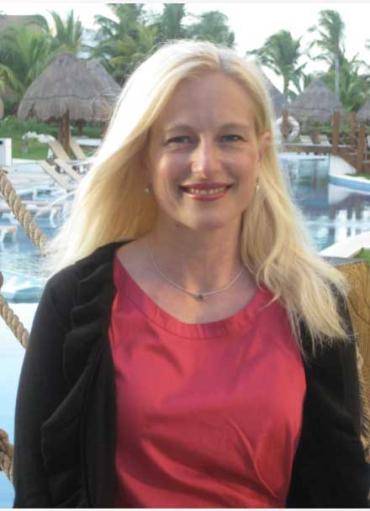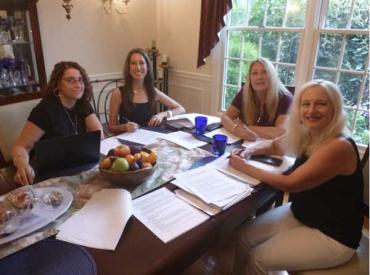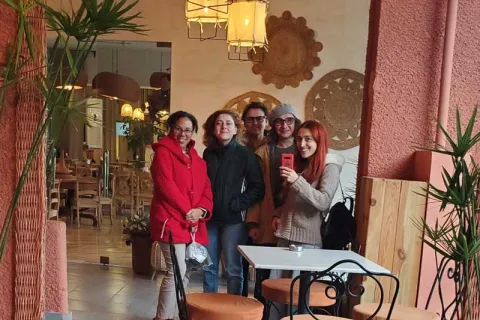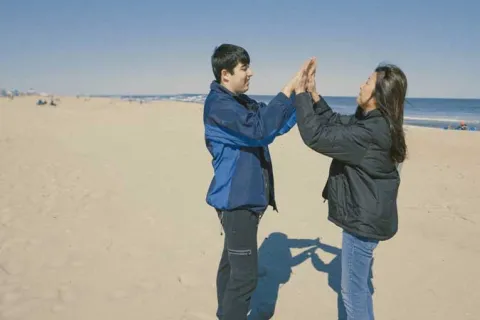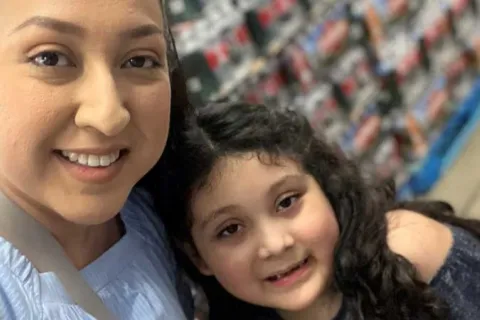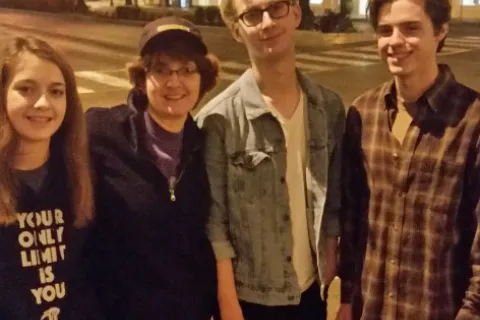Meet Kim M.
Raising awareness of transition needs in the autism community
Kim M.
It has become the driving force of my life.
Kim wears many hats. She is a frequent blogger about her two children with autism, author and served as an Autism Family Partner at Children’s Hospital of Philadelphia (CHOP).
Now she and four fellow mom friends with children with autism have started HomeLife21, a 501(c)3, to provide residential living spaces for people on the spectrum.
In 2004, when her son Justin was evaluated for autism at seventeen months old, Kim felt alone, overwhelmed, and terrified. But she gave her son all the support she could to give him the best chance at an independent life.
By the age of 6, Kim says, “his father and I knew that although he’d made so many gains - using a communication device to convey his needs, learning to read and type short sentences, having a desire to enjoy and be part of the world - it was apparent he would never navigate our world on his own. Despite all his progress, he would need 24/7 supervision until the day he died.”
She wanted to create a loving, supportive, safe forever home for her boy. “It has become the driving force of my life,” she says.
It has also gave her best friends in parents who also have profoundly autistic kids. Within this group, the idea for HomeLife21 was born, the idea to create their version of a group home to care for their sons and give back to the community.
We caught up with Kim to talk about this new venture and her drive behind it.
What inspired this journey to create HomeLife21?
One of the early intervention providers for my youngest said, 'well, you know, you won't be able to place Justin in a home probably until you are about 75.' And I was blown away. She said you do not have a choice of where they live, who they live with, or who takes care of them. It is dependent upon availability. And that just didn't sit well with me.
At the time this was 100% true. Things are changing, but not fast enough and not for the profound population.
We want to do this for other families who also want the same thing, and we want to be the blueprint for them and advocate for them and help them down the road. I hope that will be our legacy, to not only do it for our kids, but for a lot of other families with family members with profound autism and IDD as well.
What would you like the world to understand more about profound autism?
He should have options, and, you know, some of them can choose. My son can make limited choices. He can't talk, but he uses Proloquo2Go on his iPad. And he can say yes or no to something. He can shake his head, yes or no. He can choose what he wants to do but only for very simple things. I'd like him to have options, and I'd like all profoundly autistic people to have options.
And, you know, as parents, for the ones who can't speak for themselves, we need to have options so we can help make the choices that are best for them.
What would you say to someone that wants to be like a good advocate for those that have profound autism?
Really good question. I would just offer to help and be open to whatever suggestions they have, whether it is coming over and babysitting for two hours, or doing some research on different neurologists for a parent who does not have the time or the energy to do that. Just offer to help, and of course, get involved in organizations like Autism Speaks.

